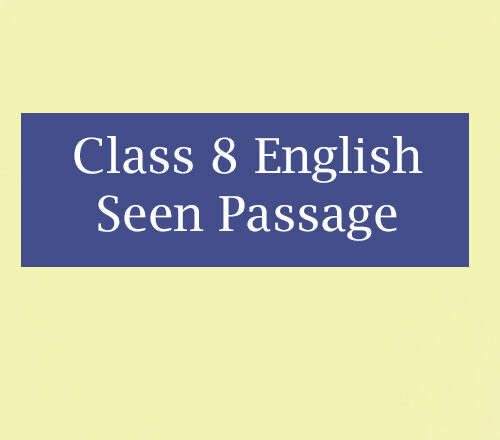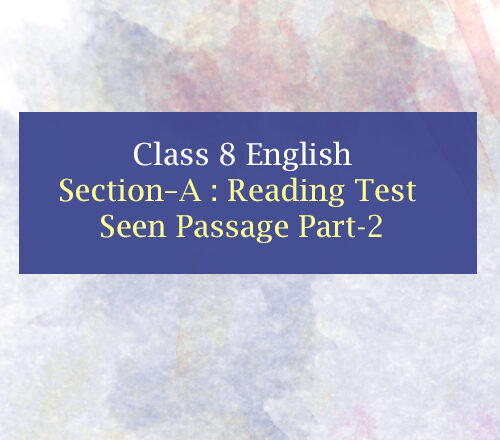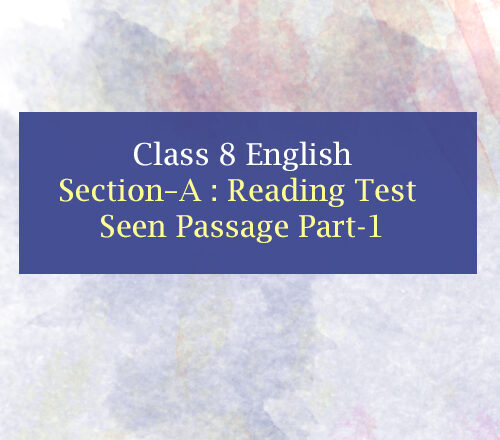
Class 8 English Seen Passages (21-24)
Class 8 English Seen Passages (21-24)
Read the text and answer questions 1, 2 and 3. (Unit–9, Lesson–06)
Communication of ideas is at the center of civilization. It needs written records. Most of our records in the modern age are on paper. Though writing was invented very early paper is a more modern invention. For a long in history, people exchanged ideas through speaking and listening. Then there came the art of writing. But to record thoughts in writing was difficult. Writing materials were not available. People used the surface of stone, metal, wood, bark, leaves, etc. for writing. Those things were not easy to carry. Then for ages, people looked for easy writing materials. Finally, Paper was invented in China in 105 AD. Before the paper age, knowledge was very rest...


